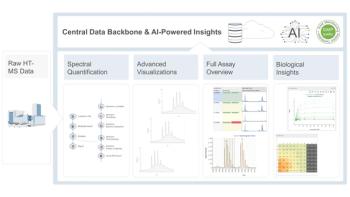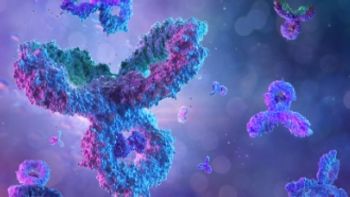
Detecting Fraudulent Substances Using Flow Injection Analysis–Mass Spectrometry
Spanish scientists recently tested flow injection analysis–mass spectrometry (FIA–MS) and its effectiveness in detecting fraudulent substances in Coleus forskohlii food supplements.
Scientists from the Instituto de Química Orgánica General (IQOG-CSIC) and Pharmactive Biotech Products in Madrid, Spain, have used flow injection analysis–mass spectrometry (FIA–MS) to detect fraudulent substances in Coleus forskohlii food supplements. Their findings were published in the Journal of Chromatography A (1).
Coleus forskohlii is a perennial plant of the Lamiaceae family that is commonly used in traditional Indian medicine for its anti-obesity, antioxidant, and analgesic properties, among others. The root of this plant is rich in bioactive compounds, such as labdane-type diterpenes, and in particular forskolin. C. forskohlii extracts are currently widely marketed as herbal dietary supplements for obesity control. Although herbal food supplements are perceived as a safe and natural alternative to chemical products for promoting health benefits, they have also been the target of several fraudulent practices.
Specifically with C. forskohlii food supplements (FKSs), frauds related to substituting a natural source with one of lower economic value (such as soy leaves or green tea), mismatches between the detected and declared amounts of forskolin, and even the component being absent, have been detected (2). Liquid chromatography (LC) with photodiode array detection (DAD) has been the main approach used for evaluating potential discrepancies between the declared and the experimentally-determined content of forskolin in FKSs. While this and other methods like it have been successful in detecting fraudulent activity, when analyzing a high number of samples, faster analytical methods with similar accuracy and sensitivity are required to ensure that food supplements are of notable quality.
Flow injection analysis–mass spectrometry is a high-throughput technique where a sample is injected into a carrier and transferred into a mass spectrometer’s atmospheric pressure interface, all without chromatographic separation. The team assert that FIA–MS shows high potential for rapidly detecting frauds related to the bioactive content of various products, such as tea, red wine, or olive oil. However, this technique was not believed to be applied to FKSs. In this study, a FIA–MS-based method was developed and validated for detecting potential frauds in FKSs. A Box-Behnken experimental design was used for optimizing MS parameters under both positive and negative polarity modes of the electrospray ionization source.
The best results were obtained for positive polarity modes of the electrospray ionization source, using a flow rate of 12 L min−1 of drying gas, a nebulization gas temperature of 300 °C, a pressure of 30 psi, and a fragmentor voltage of 149 V, using 1% of 1 mM sodium acetate in the carrier. When 22 FKSs were analyzed using the optimized FIA–MS method, 45% of the samples were free of forskolin. Further, there was a high percentage—69%—of mismatches between quantified forskolin content and what was declared on FSK labels.
Overall, the results found were comparable to those obtained using LC–MS. Further, it allowed for joint quantitation of both forskolin and its isomer isoforskolin, which significantly reduced analysis time. The method is now believed to be an excellent tool for evaluating the authenticity of different C. forskohlii supplements, offering a fast, cost-effective, simple, and reliable alternative to other techniques. Producers and regulatory authorities can use this technique to quickly identify various types of fraud in different products. Further, this approach could help detect fraudulent practices in other herbal supplements, such as mislabeling, either due to lower concentrations of declared bioactives or even their absence.
References
(1) Jiménez-Amezcua, I.; Díez-Municio, M.; Soria, A. C.; Ruiz-Matute, A. I.; Sanz, M. L. Flow Injection Analysis–Mass Spectrometry for the Fast Detection of Frauds in Coleus forskohlii Food Supplements. J. Chromatogr. A 2025, 1740, 465547. DOI:
(2) Amezcua, I. J.; Blas, S. R.; Municio, M. D.; et al. Development of a Multianalytical Strategy for Detection of Frauds in Coleus forskohlii Supplements. J. Chromatogr. A 2022, 1676, 463198. DOI:
Newsletter
Join the global community of analytical scientists who trust LCGC for insights on the latest techniques, trends, and expert solutions in chromatography.





